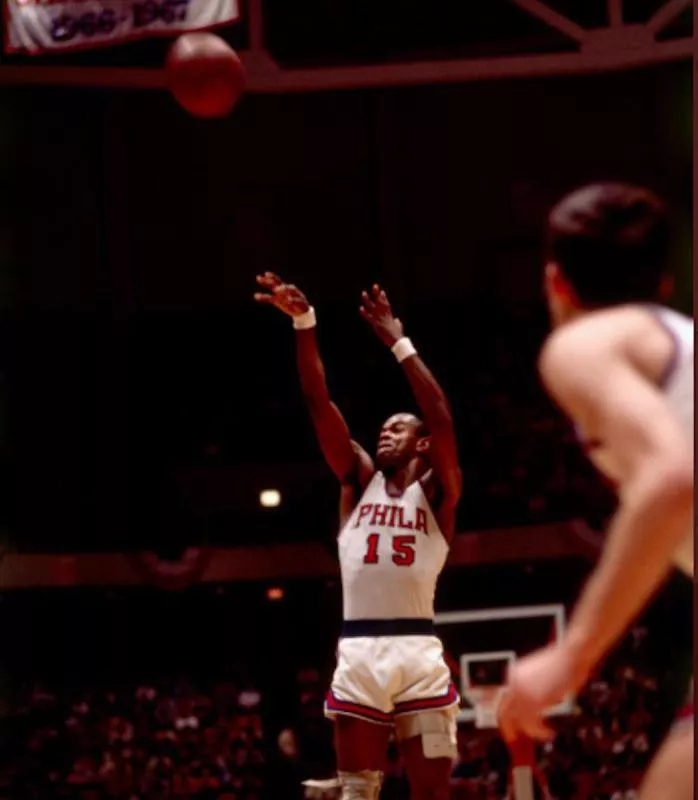
Word of the Day: Inconnu
Today’s word of the day is inconnu, courtesy of www.dictionary.com. The noun means “a person who is unknown; stranger.” Oddly, it also means, “a game fish, Stenodus leucichthys, of fresh or brackish northern waters.” It is pronounced /ˌɪn kə ˈnu/ or / ˌɪn kə ˈnyu/. In IPA transcription, the apostrophe before the last syllable indicates that that is the syllable that gets stress. The comma before the first syllable indicates that it gets a secondary stress. The middle syllable is unstressed, which explains with the vowel in the second syllable is the schwa (ə) because in English vowels in unstressed syllables tend toward schwa, the most central vowel in the mouth, the one that we use for vocalized pauses.
According to the website, the word entered the language in the first decade of the 19th century from French, “literally, unknown, equivalent to in- in-3 + connu, past participle of connaître to know, be acquainted with <Latin cognōscere.” But what I found especially interesting about exploring the etymology of this word is that www.etymonline.com said, “No results were found for inconnu.”
On this date in 1968, the 18th NBA All-Star Game was played. The West team was led by a trio of L.A. Lakers: Jerry West, Elgin Baylor, and Archie Clark. If you are a basketball fan at all, you know West and Baylor. Clark was the other guard for the Lakers. And you would not be wrong if you assumed that the Lakers got to the NBA finals in 1968, though they lost to the N.Y. Knicks. Two other guards that were on that West team were Lenny Wilkins and Walt Hazzard. Hazzard was on the first NCAA Championship team at UCLA in 1964, and Wilkins became as famous for his coaching as for his playing.
The East team featured some well-known names as well: Willis Reed, who led the Knicks to the championship that year, Wilt Chamberlain, probably the most dominating player ever to play the game, Bill Russell, who led the Boston Celtics to 11 championships, Sam Jones, Dave Bing, and Gus Johnson. The East also had Oscar Robertson, the Big O, and another one of the greatest players of all time. The East was led in scoring by John Havlicek of the Celtics, who for much of his career was the best sixth man in the NBA.
The East beat the West by a score of 144-124.
But the MVP of that East team, the MVP of the 1968 NBA All-Star Game, was Hal Greer. Who?
Hal Greer was from Huntington, West Virginia. He became the first African-American to play for the Marshall Thundering Herd, from 1955-1958 (first-year students were not allowed to play varsity in those days). During those years he averaged just under 20 points/game and just over 10 rebounds/game. He was taken in the second round of the NBA draft by the Syracuse Nationals, for whom he played the next five seasons. The Nationals then moved to Philadelphia and were rechristened the 76ers.
In the 1966-67 season, Greer, Chamberlain, Chet the Jet Walker, Billy Cunningham (the Kangaroo Kid), Luke Jackson, Larry Costello, and Wali Jones won the NBA Championship. I remember how Jones, the backup point guard, would enter games against games against Cincinnati for the purpose of guarding Oscar Robertson, and Jones would basically live inside the Big O’s jersey until Robertson would physically push him away. But in the playoffs of 1967, Hal Greer averaged over 27 points/game.
Greer was an excellent free throw shooter as well as a scorer. It was a different age in the 1960s. There were still players, like Rick Barry, who shot a two-handed, underhand free throw. Hal Greer shot a jump shot from the free throw line. His thinking, he said, was that he shot the jump shot from the field, so why not shoot exactly the same way from the charity stripe.
When I hear kids talk about the great basketball players today, they talk about Michael (of course), and LeBron, and Steph Curry, Westbrook, and others. They may have heard some of the great names of the past, like Walt Frazier, Earl Monroe, Jerry West, Bob Cousy, and some of the ones I’ve named above: West, Robertson, etc. But I cannot imagine that very many would know the name Hal Greer. He was one of my heroes when I was a kid. Unfortunately, my jump shot was more like Flynn Robinson’s than Hal Greer’s (actually, Flynn Robinson was a pretty good player).
But Hal Greer was a 10-time NBA All-Star, even though today he is inconnu.
The image today is of Hal Greer shooting a free throw. It comes from an article by Paul Ladewski called “Most Unusual Free Throw Techniques the NBA Has Ever Seen” (https://www.stadiumtalk.com/s/most-unusual-free-throw-techniques-nba-2d042fb0b25f4cf0). Ladewski writes, “His trademark pull-up jumper was money. So if you’re gonna take your best shot at the free throw line, then why not take your best shot? Bulldog converted at least 77 percent of his freebies every season.”